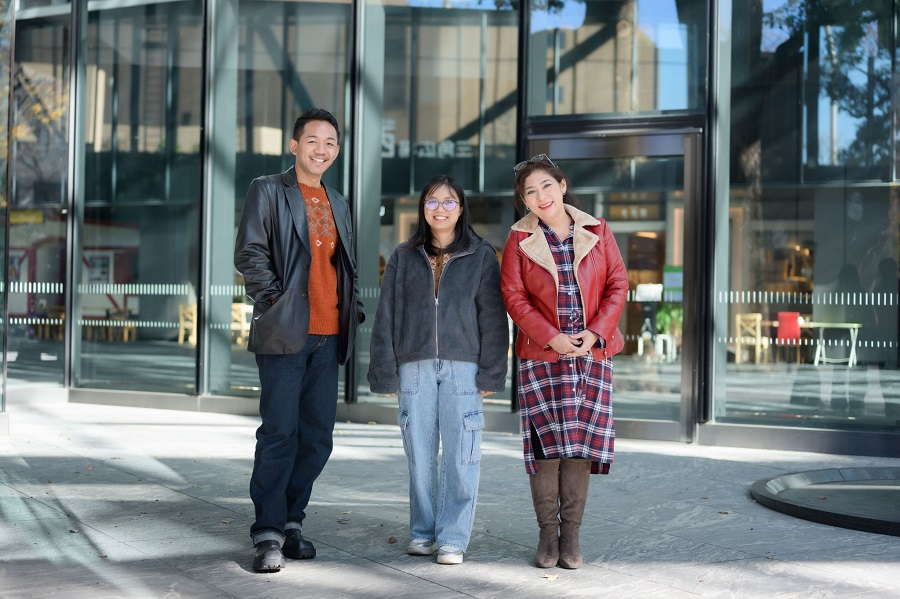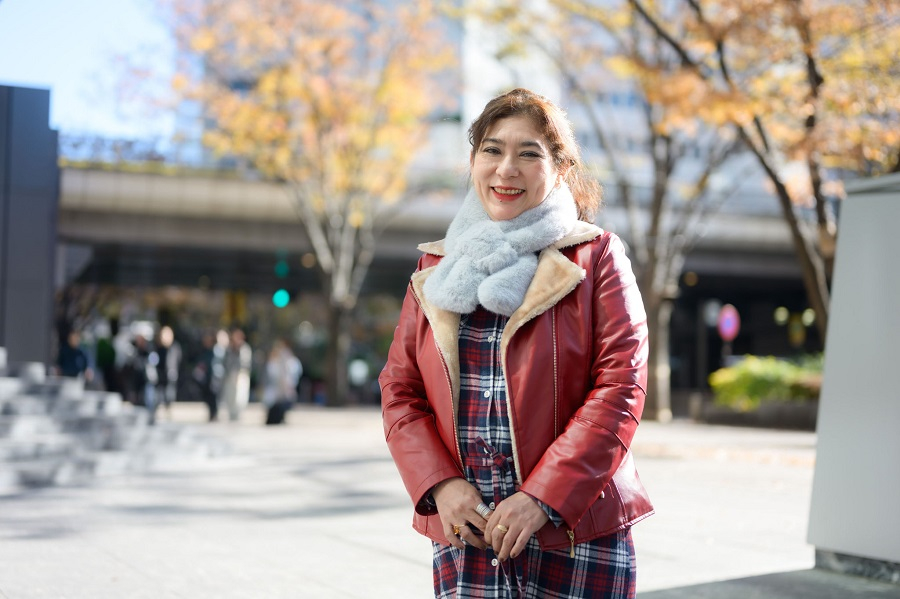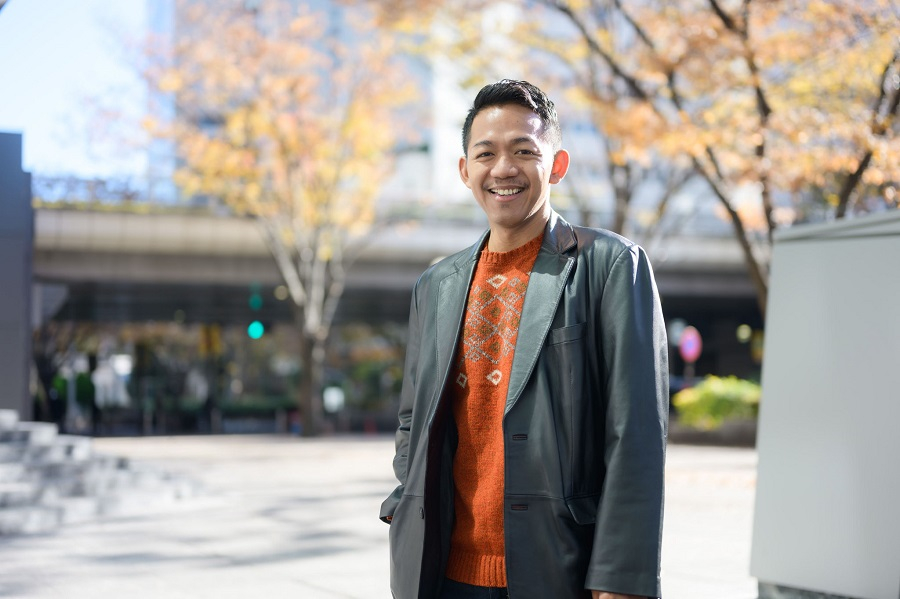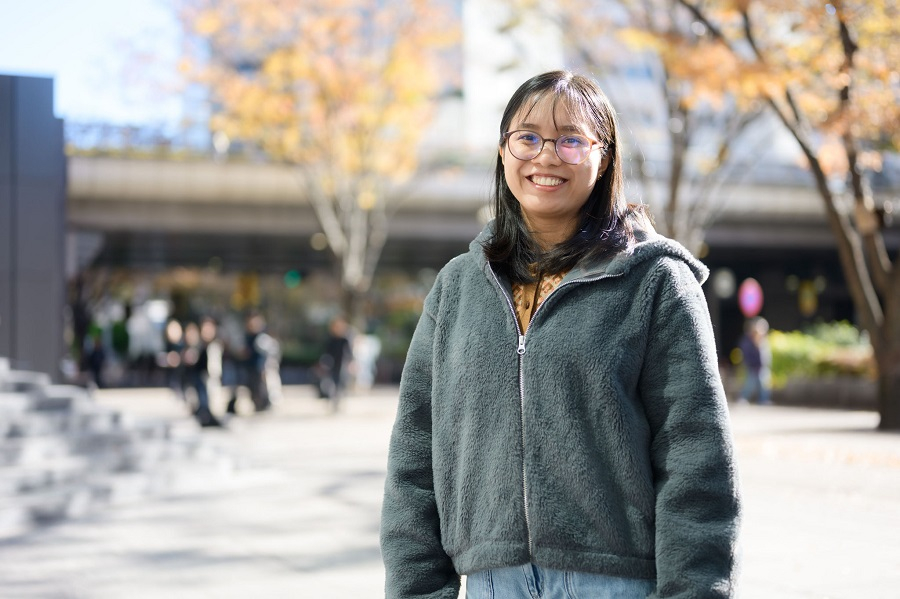Intercultural Crosstalk
Caregivers From Abroad ① -How I Came To Work As a Caregiver And The State Of Caregiving Industry In My Country Of Origin-

Profiles
Ana (from Peru)
- Years of residence in Japan
- 33 years
- Native language
- Spanish
- Favorite Japanese words
- Otsukaresama ("Good job" or "Thanks for your hard work" in a friendly and respectful way)
- Favorite places in Tokyo
- Akihabara
- Favorite food
- Sushi and ceviche (Peruvian dish)
- Hobbies
- Cooking and teaching how to cook Peruvian food. Making clothes and handicraft.
- Favorite season
- Spring, because I like to grow plants
Apri (from Indonesia)
- Years of residence in Japan
- 11 years
- Native language
- Indonesian
- Favorite Japanese words
- Jōnetsu (passion), Yūjō (friendship)
- Favorite places in Tokyo
- Futako-Tamagawa, Asakusa
- Favorite food
- Sashimi, sushi
- Hobbies
- All kinds of outdoor activities
- Favorite season
- Winter, because I can go snowboarding and get dressed up
Zar (from Myanmar)
- Years of residence in Japan
- 6 years
- Native language
- Burmese
- Favorite Japanese words
- Arigatō gozaimasu(thank you very much)
- Favorite places in Tokyo
- Tokyo Sea Life Park
- Favorite food
- Edamame
- Hobbies
- Listening to Burmese songs
- Favorite season
- Spring, since in Myanmar, there is a flower that looks a lot like a cherry blossom, and it blooms once a year.
Round 1: How I Came To Work As a Caregiver And The State Of Caregiving Industry In My Country Of Origin
We will be delivering a 3-part series of round-table discussions with caregivers from abroad.
The number of foreign residents working in the elderly care industry is increasing year by year. Amidst the current shortage of care workers, we spoke to 3 people who are actually working hard in the care industry about how they got into it, what their jobs entail, and their thoughts on the work.
Please Tell Us About Your Work

I've been working in the care industry for 5 years. I work at a care facility, and sometimes have to work night shifts. I support the residents in line with their needs. When I'm working at night, the most important thing is to make sure they take their medicine. I check to make sure I don't make any mistakes with the names and dosages of the medicine, and then I leave it in each room.
I've been working as a caregiver for 11 years now. I work at a private nursing home. Like Ana, I also work night shifts, but during the day I'm busy planning recreational activities and preparing for events. I help with the care of the residents, but there are also many people who are very active. I work according to their needs, but everyone has their own particular preferences. The facility is different from the environment they were used to, so they have a lot of requests, but it's interesting. We also go to places like Disneyland, music festivals, and sumo matches.
I have been working in the caregiving industry for 6 years, and I work at a special nursing home for the elderly (hereafter referred to as a "special nursing home"). I provide care tailored to the needs of each individual resident. This includes helping with meals, toileting, and bathing, as well as night shifts. As it is a special nursing home, there are not many recreational activities or events.
I have also worked in special nursing homes and private nursing homes. The atmosphere is different between places run by the government or a company, and paid nursing homes, which are run by a company. For example, if a resident breaks a bone in a fall, it is a lot of work to report it in the case of a special nursing home. In a paid nursing home, the company deals with it. There is a committee within the company to prevent similar things from happening in the future, by reporting and taking measures.
You can only enter a special nursing home if you have a level 3 or higher care requirement. I thought there would be a lot of bedridden people, but that wasn't the case. There are people who can move around, and there are people who are bedridden.
At my facility, the floors are divided according to the condition of the users, and the 3rd floor is for people with dementia. You can move around freely inside the facility, but it's hard because you have to look for residents if they're not in their rooms. You have to be very careful.
There are various committees within the company, and as I am also a sub-leader, I have also been appointed as a trainer. When new people join, I go with them and train them in their work. I am the leader of the recreation committee, but there are teams within that committee, each with 3 or 4 members. We divide up the roles, so I don't have to do everything by myself. Events like the Christmas party are fun because I get to decorate with the residents. Being a trainer is tough.
I am in charge of the living quarters and look after 2 people. I also participate in the Accident Prevention Committee.
We call it the Risk Management Committee. The wording is different, but I think the content is the same.
Did You Also Work in Elderly Care in Your Home Country?

I worked in an office in my own country. I didn't think about working in caregiving until I came to Japan.
In Indonesia, I graduated from a nursing university and worked as a nurse. I was in charge of the operating room for 2 years, but then a friend invited me to come to Japan under the EPA (Economic Partnership Agreement) program, and I started working as a caregiver.
I started working in Japan as a caregiver for the first time. In Myanmar, I worked as an assistant nurse in a hospital. I thought that working as a caregiver would suit me, so I came to Japan as a technical intern trainee. That was 6 years ago. After 3 years, the system changed to a specific skilled worker system, and I obtained a qualification as a certified caregiver, so I changed my visa to a caregiver visa.
I got my qualification as a Level 2 care helper (now called “Initial Caregiving Training Course”) about 15 years ago, but at the time I didn't have much confidence in myself, so I was working in a different job.
Please Tell Us How You Came To Work As A Caregiver

I was looking for a job overseas when I found out about a job in Japan as a caregiver. At the time, there wasn't much information like that in Myanmar. I thought I'd give it a try, so I started studying Japanese on my own first. A friend told me that they were recruiting caregivers at the time, so I went to have an interview. At the time, my Japanese level was N3.
I had always wanted to work overseas. A friend told me about the EPA program, and I learned that I could work as a nurse in Japan, Germany and Australia. English was essential for all the countries except Japan. In Japan, there were openings for both nurses and care workers, and there were more openings for care workers. I was told that it would be okay even if I started from scratch. I thought that caring for the elderly would not be that different from nursing, so I chose to work as a caregiver because I wanted to go to Japan.
A friend told me about the qualifications for a caregiver. There were people from the Philippines and other countries at the school. When you graduate, they introduce you to work, but most of the places are in Tokyo. I live in the countryside, so it was very far away, so I didn't do any caregiver work. Even after I moved to Saitama Prefecture, I worked at a sweets factory, but it was mostly short-term work as a temp. When I was looking for work, there were a lot of caregiver jobs. Since I had the qualifications, I did caregiver work for the first time. I came to like the work once I tried it.
At first, I didn't have any preconceived ideas about the elderly care profession, but after trying it out, I thought it was amazing. You can learn a lot of things, and I find it very rewarding to be able to interact with people who are older than me. Sometimes people say that elderly care is my calling. I'm also very happy to be able to get paid just for spending enjoyable time with the residents every day. When I finish work, I hand over the information I need to know to the next person on duty, and once I leave the facility, it's all my time. I don't have any work-related stress.
My parents were worried about me going to Japan to work. However, they support me and think that working in caregiving is a good job. 6 years have passed, but they still contact me every day. I think they are worried about me living alone in Japan.
Please Tell Us About The Caregiving Situation In Your Country

There are nursing homes in Indonesia, but they are scarce. It is normal for family members to look after their parents, so even the wealthy rarely entrust their parents to someone else. There are cases where people hire helpers to look after their parents at home.
There are not many care facilities in Myanmar. The whole family looks after the parents. For those who don't have children or family, there are facilities like special caregiving homes in Japan. You don't have to pay. It's a Buddhist country, so rich people make donations. They donate food and other necessities. There are not many of these facilities, and they are in big cities.
In Indonesia, people don't live as long as they do in Japan. Many people think that it's better to go to heaven without treatment for serious illnesses. In Japan, people are cared for until the end. Religion is very strong, so I don't think this will change in the future.
In Peru, family members look after their loved ones until the end. People without family members go to senior care homes.
In Japan, there are many people who are over 90 years old and still very active. In Myanmar, children start looking after their parents when they are around 70 years old. When they turn 80, the whole family takes care of them. When I came to Japan, I was really surprised to see that everyone looks after everything themselves.
It's a given that you look after your own parents. That's how we've been brought up, and I think it will always be the same for us, looking after our parents until they die. In Indonesia, there is a saying that “heaven is under the care of parents”.
There is a saying in Myanmar that has a similar meaning.
It's about the same in Peru. But when I get old, I want to go to a nursing home. Children have their own lives. I don't want to get in the way of their lives. I want to make the place where I am happy. The people in the facility are also enjoying themselves.
How did you find the first article about caregivers from abroad?
There are few facilities for the elderly in their home countries, so these 3 people were starting out in the caregiving profession for the first time in Japan. At first, they didn't understand the work they were doing, and they felt anxious, but now that they've got used to it, they feel a sense of fulfillment, and they're taking on the tough jobs with responsibility and enjoying themselves.
The second article is about "Life as a caregiver in Japan". We hope it will be of interest to you.
── Continued in the Following Issues
